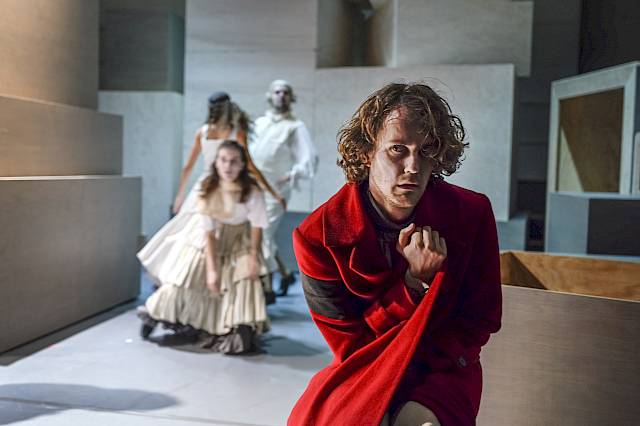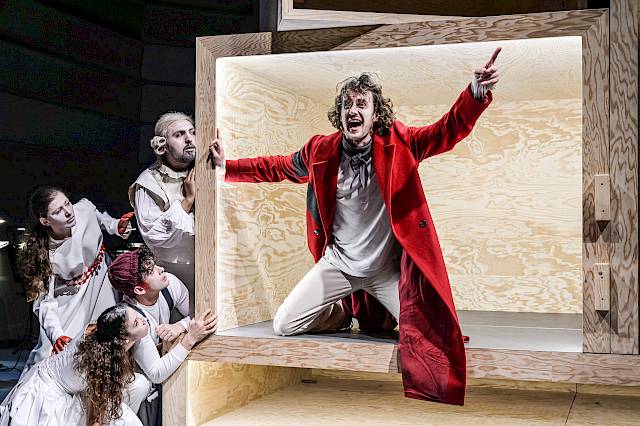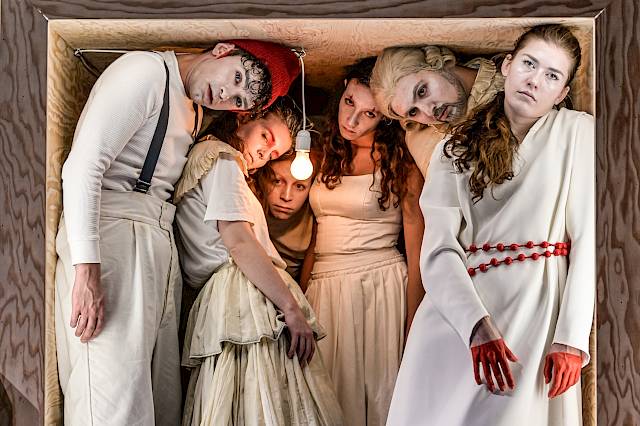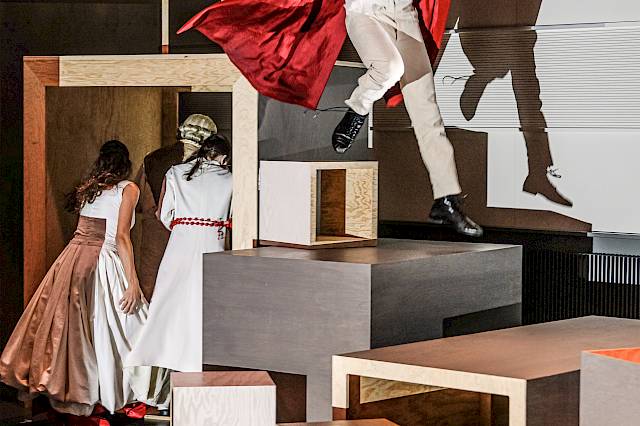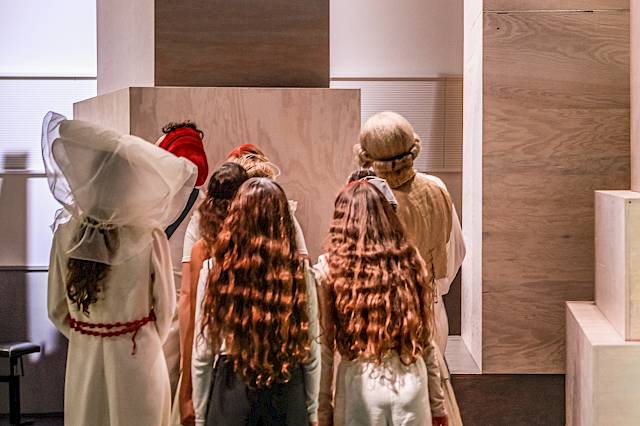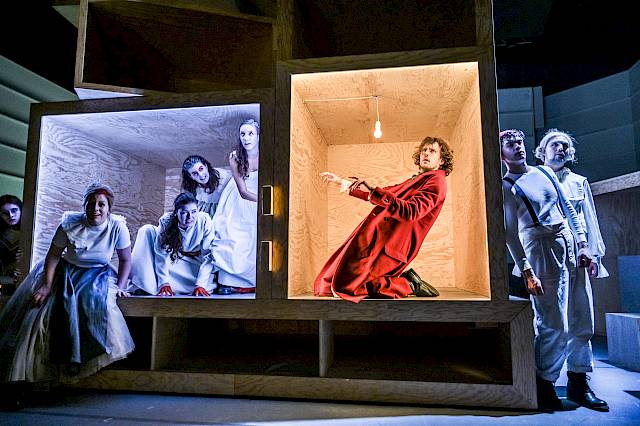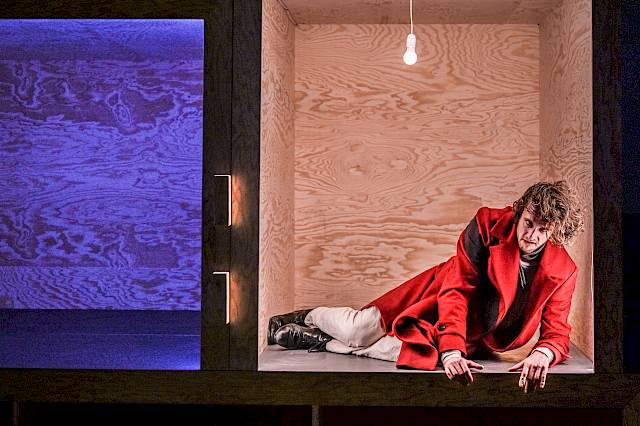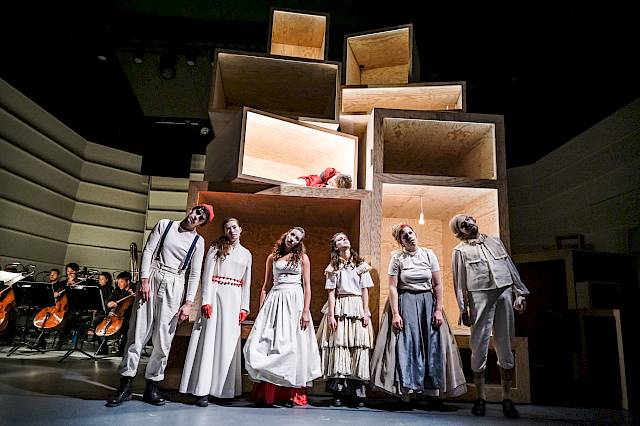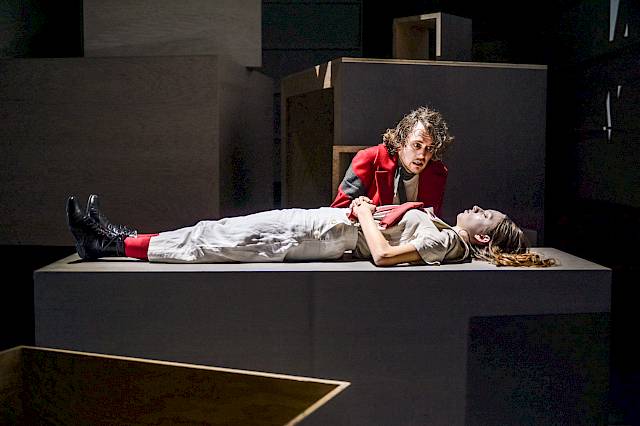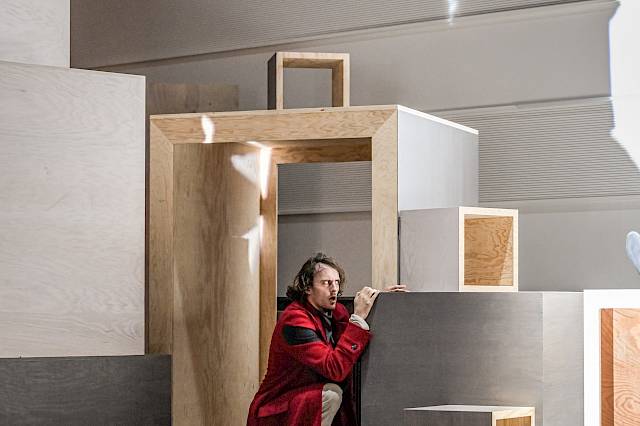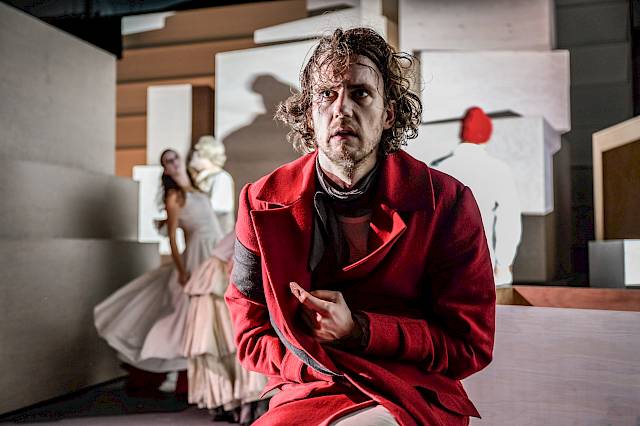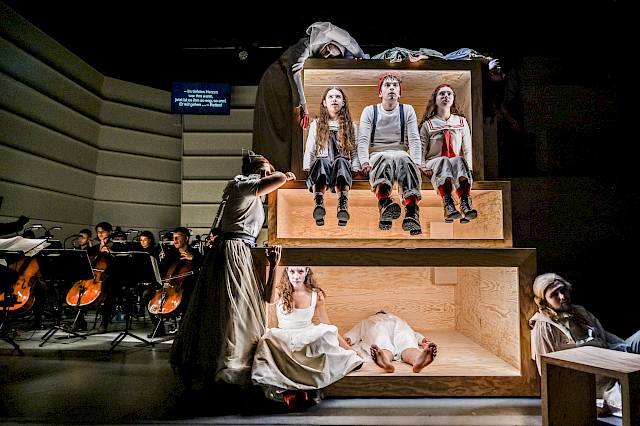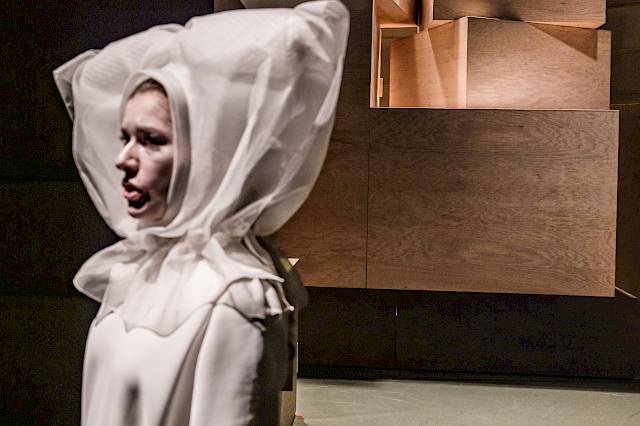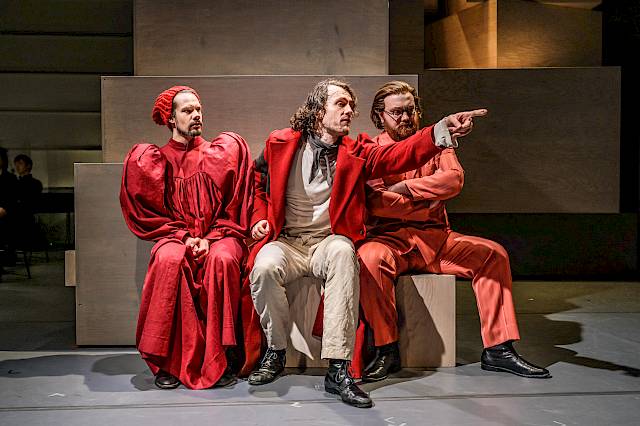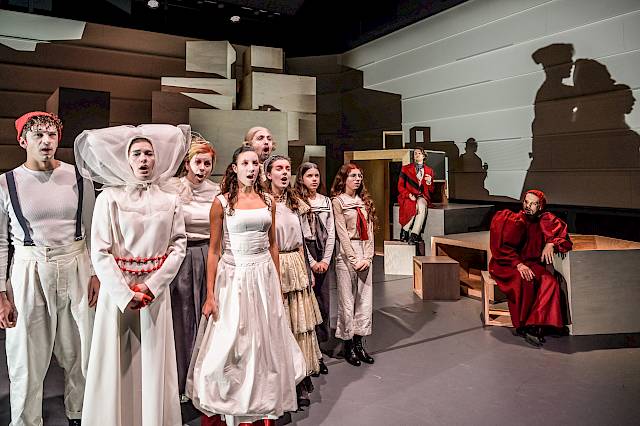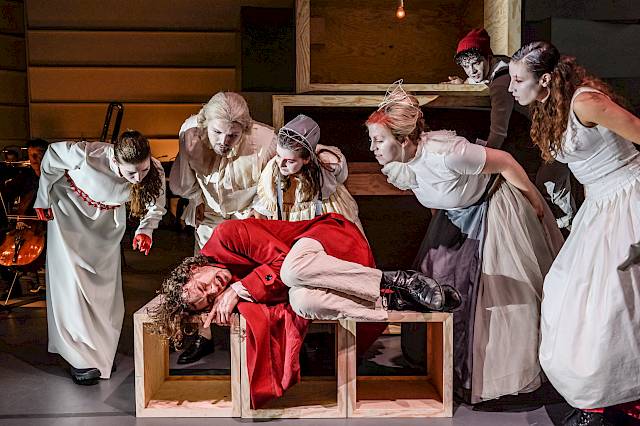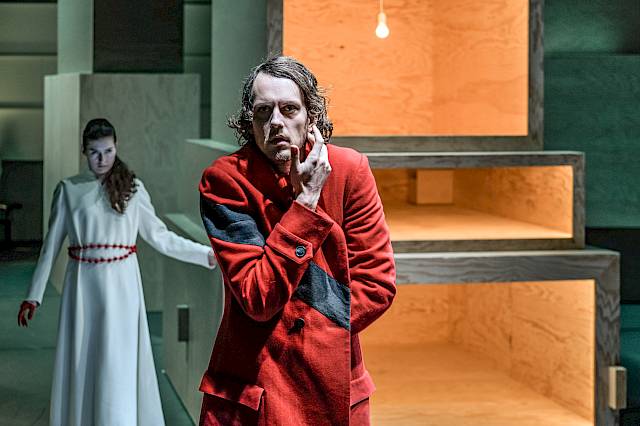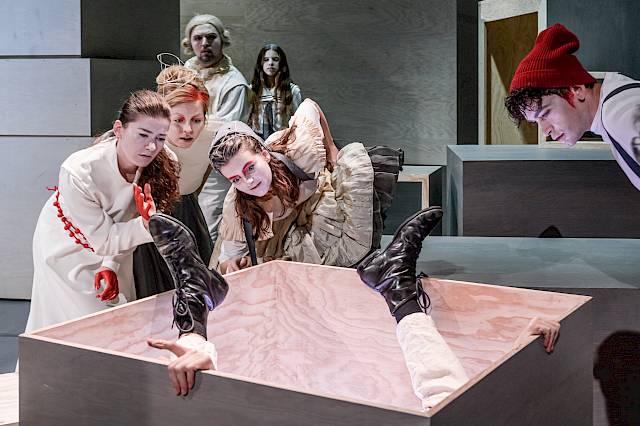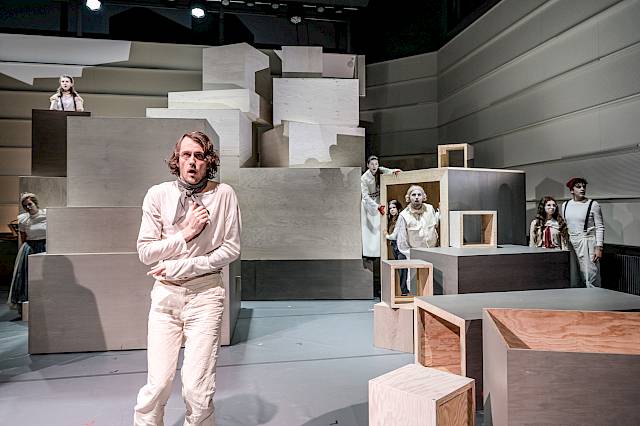Image 1
A young man hurries through the mountains. Inner voices accompany him. He throws himself into a village well.
Image 2
Oberlin, the village priest, invites the stranger into his house. He identifies himself as the writer Jakob Lenz. He seems depressed. Oberlin asks him to stay with him for a while.
Image 3
Lenz tries to pray, but is reminded of his unhappy love for Friederike. He curses the night, has to go out - and falls into the well again.
Image 4
Oberlin leads Lenz into nature, where he loses himself in thought. The village community joins in. Children eye Lenz.
Image 5
Lenz wants to give a sermon. He struggles to express himself. He jumps away with the children.
Image 6
Kaufmann, a former friend, comes to the village. He engages Lenz in a conversation about art. Lenz responds to Kaufmann's narrow-minded, mocking views with rambling remarks. In addition to profound thoughts, he also stoops to unrhymed and arrogant statements. Kaufmann wants to send Lenz back to his father. Lenz bitterly refuses.
Image 7
In the mountains, Lenz finds a moment of peace and inspiration which, however, turns into violent sadness. The inner voices conjure up the loss of Friederike. Lenz wants to save her. The result is "a kind of dream image".
Image 8
Lenz wakes Oberlin in the middle of the night. He asks for the girl he is suffering for. Oberlin cannot help him. Lenz leaves.
Image 9
In the mountains, Lenz is again surrounded by voices. A young woman harasses him and drives him to flee.
Image 10
Lenz tries to bring a dead girl back to life. At the sight of the cold corpse he feels abandoned by God.
Image 11
At dawn, Lenz walks aimlessly through the landscape. The voices bring him to the realisation that he must die. He tries to kill himself.
Image 12
Oberlin is worried about Lenz. Kaufmann believes that he is beyond help. Lenz feels confused, bored, lost and driven. In a prayer he wishes for the night.
Last image
Lenz fantasises. Oberlin reluctantly leaves him and leaves with Kaufmann. Lenz remains alone.


